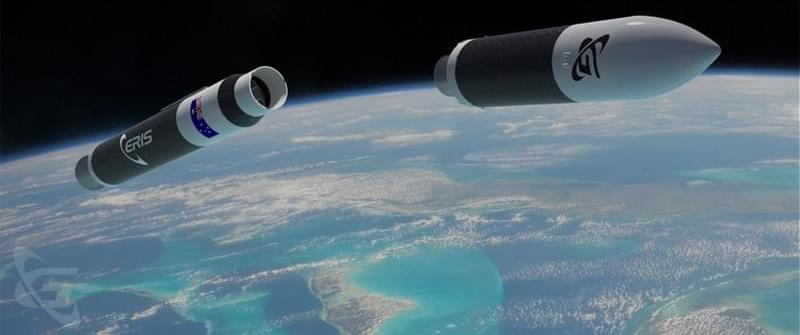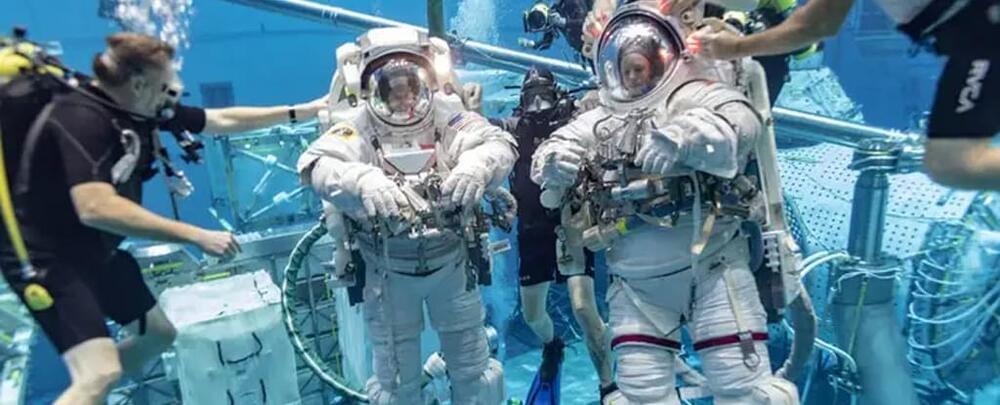Infinite speed helical engine for space travel 😗😁
Copyright © 2019 by David M. Burns. Published by the American Institute of Aeronautics and Astronautics, Inc., with permission.
Infinite speed helical engine for space travel 😗😁
Copyright © 2019 by David M. Burns. Published by the American Institute of Aeronautics and Astronautics, Inc., with permission.

To date, only a handful of countries have developed an independent launch capability. If all goes according to plan, Gilmour Space could enable Australia to become the 12th member of the club able to put its own rockets into space.
Founded in 2012, Australian company Gilmour Space is working on hybrid-engine rockets and associated technologies to support the development of low-cost space launch vehicles.
Continue reading “Australia’s first rocket planned for 2023” »
A post was reported and I checked it. My business is minerals, and I had heard of the discovery before so I kept the post. Here is information from BBC to back it up.
Carmeltazite was added to the official list of known minerals this week after being approved by the International Mineralogical Association (IMA).
Taub Avi, CEO of the precious stone exploration company Shefa Yamim, said it was discovered by the company in volcanic rock in northern Israel’s Sevulun Valley.
NASA’s Orion spacecraft will soon fly further than any human-rated spacecraft has ever flown before.
NASA’s Orion spacecraft is now on day 10 of the Artemis I mission after the successful launch of NASA’s Space Launch System (SLS) on November 16, meaning it has had ample opportunity to capture a wealth of stunning imagery of the moon.
The uncrewed capsule cruised within 81.1 miles (130 kilometers) of the lunar surface during its closest approach to the moon earlier this week, and it is now preparing to enter a distant retrograde orbit (DRO) of the moon that will see it fly farther from Earth than any human-rated spacecraft ever has before.

Many children grow up gazing up at the night sky, dreaming of becoming astronauts who boldly go to the Moon – and beyond.
But in order to get that elusive job, would-be astronauts must make it through a competitive selection process. For NASA’s 2021 class of astronauts, the space agency said it chose just 10 candidates from more than 12,000 applicants.
Continue reading “Here’s How NASA Determines Which Applicants Make It to Be Astronauts” »
“Science is for everyone and space travel hopefully can be for everyone.”
The European Space Agency (ESA) named the first-ever “parastronaut” this week on Wednesday, Nov. 23, meaning the world may soon see the first disabled person go to space.
The agency, made up of 22 nations, chose former British Paralympic sprinter John McFall among 16 other new recruits for astronaut training.
NASA officials say Artemis 1 mission teams are “giddy” after witnessing how well their Orion spacecraft has been performing so far on its way towards lunar orbit.
Artemis 1 launched at 1:47 a.m. EST (0647 GMT) on Nov. 16, blasting off from Kennedy Space Center in Florida in a spectacular display of the sheer power of NASA’s Space Launch System (SLS) rocket. The Orion spacecraft reached Earth orbit shortly after, and then at 87 minutes after launch performed a so-called Trans Lunar Injection burn to send it hurtling towards the moon. On Monday (Nov. 21), Orion performed another burn to send the spacecraft close enough to the lunar surface to leverage the moon’s gravity to pull the spacecraft around the moon into a distant retrograde lunar orbit.
There have been 24 coronal mass ejections in the past week alone.
As NASA’s Orion spacecraft prepares to fly by the Moon, sky gazers can expect another little treat in the skies as a minor geomagnetic storm is expected to hit the Earth, EarthSky.
Over the past week, our Sun has seen some intense activity. Usually, when activity on the Sun increases, the chances of a geomagnetic storm on Earth also increase. Geomagnetic storms carry risks to infrastructure and communications on the planet. However, in the past week, our planet has been a bit lucky it wasn’t in the line of fire.
The Artemis mission is preparing astronauts for this lofty goal.
Humans are on course to be living and even working on the moon by 2030, a NASA official told BBC’s Sunday with Laura Kuenssberg program.
Howard Hu, the head of the U.S. agency’s Orion lunar spacecraft programme, said astronauts could stay on the celestial object for extended periods of time by the end of this decade.
WASHINGTON, Nov 8 (Reuters) — The United States and Russia are expected to meet soon and discuss resuming inspections under the New START nuclear arms reduction treaty that have been paused since before Russia’s invasion of Ukraine, U.S. State Department spokesperson Ned Price said on Tuesday.
Speaking at a daily press briefing, Price said the bilateral consultative commission (BCC), the mechanism for implementation of the last remaining arms control agreement between the world’s two largest nuclear powers, will meet “in the near future.”
Russia in August suspended cooperation with inspections under the treaty, blaming travel restrictions imposed by Washington and its allies over Moscow’s February invasion of Ukraine, but said it was still committed to complying with the provisions of the treaty.